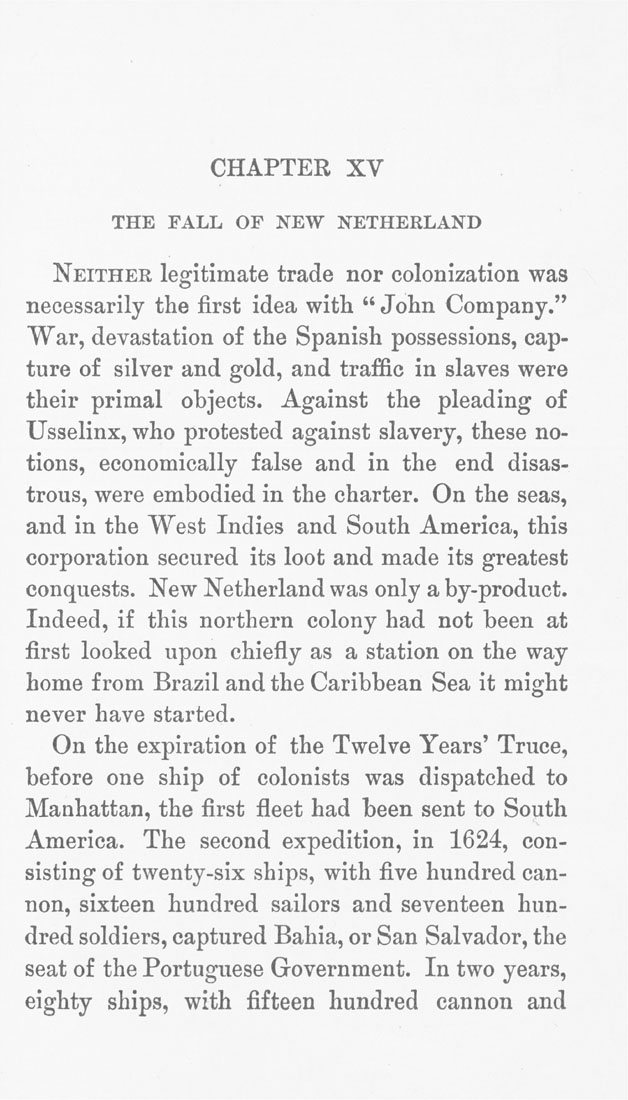CHAPTER XV
THE FALL OF NEW NETHERLAND
Neither legitimate trade nor colonization was
necessarily the first idea with " John Company."
War, devastation of the Spanish possessions, cap¬
ture of silver and gold, and traffic in slaves were
their primal objects. Against the pleading of
Usselinx, who protested against slavery, these no¬
tions, economically false and in the end disas¬
trous, were embodied in the charter. On the seas,
and in the West Indies and South America, this
corporation secured its loot and made its greatest
conquests. New Netherland was only a by-product.
Indeed, if this northern colony had not been at
first looked upon chiefly as a station on the way
home from Brazil and the Caribbean Sea it might
never have started.
On the expiration of the Twelve Years' Truce,
before one ship of colonists was dispatched to
Manhattan, the first fleet had been sent to South
America. The second expedition, in 1624, con¬
sisting of twenty-six ships, with five hundred can¬
non, sixteen hundred sailors and seventeen hun¬
dred soldiers, captured Bahia, or San Salvador, the
seat of the Portuguese Government. In two years,
eighty ships, with fifteen hundred cannon and
|








